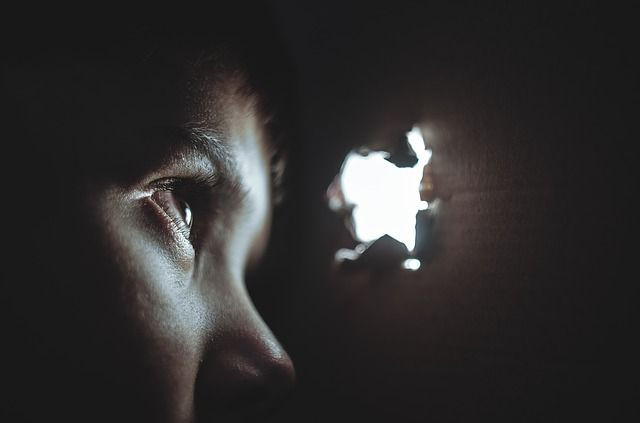Witnessing Abuse In Childhood Linked To Psychopathic Traits, Such As Grandiosity, Lying

Children do not have to personally experience abuse to bear the consequences of domestic violence. A new study found that merely seeing other people abused during childhood is linked to permanent damages in a witness' personality and the emergence of later psychopathic qualities. Although the study didn't say that witnessing abuse always leads to psychopathy, the link was strong enough to suggest that parents remove their children from abusive environments at any cost.
The study, now published online in in the journal Law and Human Behavior, found that men who witnessed domestic violence in childhood were likely to have more psychopathic qualities than men who did not. While past research has shown a link between childhood abuse and increased psychopathic qualities, according to the researchers, this is the first study to show that merely witnessing abuse in others was enough to increase a child’s risk of developing these problematic personality characteristics, Livescience reported.
Read: 10 Personality Traits Of Psychopaths, From Lack Of Empathy To Preference For Bitter Food
For the study, the team from the University of Wisconsin School of Medicine and Public Health asked 127 male prisoners whether or not they had witnessed someone being abused during their childhood. They then had the men take a personality test to gauge how they scored on psychopathic personality qualities, such as an unrealistic sense of superiority to other people, a tendency to manipulate others, a lack of empathy, and a tendency to commit antisocial actions, such as crimes, Livescience reported.
Results showed that 40 percent of prisoners were identified as having high psychopathic qualities, and the prisoners who had seen parents or siblings abused at home during childhood were more likely to score high on the scale of such traits.
Although pop culture has glamorized the idea of the psychopath, it is a real medical condition. According to All Time 10’s, traits such as lying and lack of empathy are common among psychopathic individuals. In addition, their lack of empathy and desire for immediate gratification also tends to make psychopaths more sexually promiscuous than the average individual. The researchers chose prisoners as volunteers for their study, as this demographic is likely to have more psychopaths than the general population.
While the link between witnessing abuse in childhood and psychopathic traits seems clear, the issue is complicated. For example, it is possible that these children learned psychopathic qualities through example, or it may be that they learned to lie and manipulate others and as survival tactic to avoid being the object of abuse themselves. Either way, the story is equally sad, but it also shows just how important early childhood experiences are on our later psyche.
Source: Dargis M, Koenigs M. Witnessing domestic violence during childhood is associated with psychopathic traits in adult male criminal offenders. Law and Human Behavior . 2017
See Also:
Psychopath Definition May Be Different Than You Thought: 7 Facts About Psychopaths
'Cold-Hearted' Psychopaths Are Born with Distinct Brains, Existing Treatments May Be Useless



























